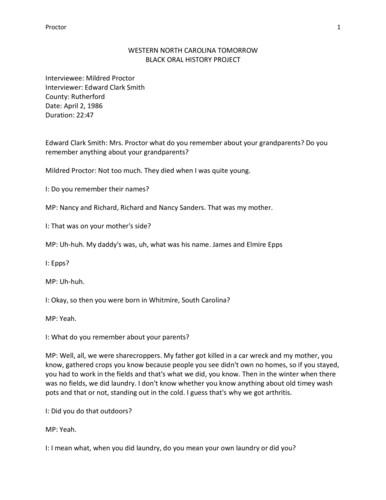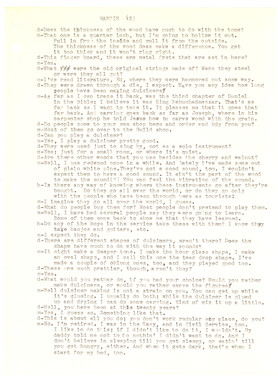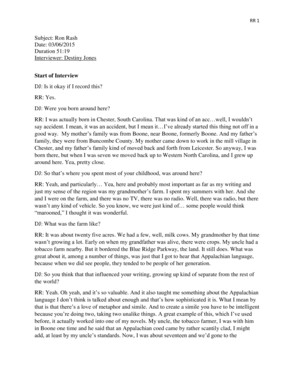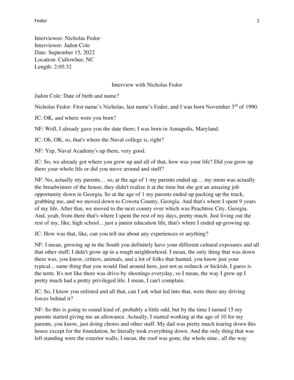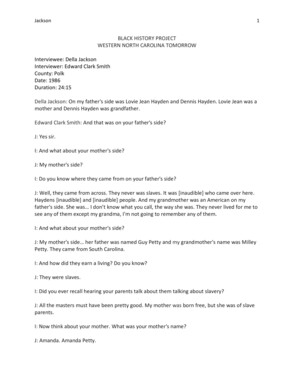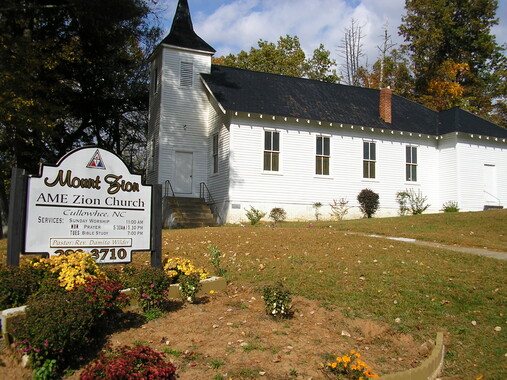Western Carolina University (20)
View all
- Canton Champion Fibre Company (2308)
- Cherokee Traditions (293)
- Civil War in Southern Appalachia (165)
- Craft Revival (1942)
- Great Smoky Mountains - A Park for America (2767)
- Highlights from Western Carolina University (430)
- Horace Kephart (941)
- Journeys Through Jackson (154)
- LGBTQIA+ Archive of Jackson County (24)
- Oral Histories of Western North Carolina (314)
- Picturing Appalachia (6772)
- Stories of Mountain Folk (413)
- Travel Western North Carolina (160)
- Western Carolina University Fine Art Museum Vitreograph Collection (129)
- Western Carolina University Herbarium (92)
- Western Carolina University: Making Memories (708)
- Western Carolina University Publications (2283)
- Western Carolina University Restricted Electronic Theses and Dissertations (146)
- Western North Carolina Regional Maps (71)
- World War II in Southern Appalachia (131)
University of North Carolina Asheville (6)
View all
- 1700s (1)
- 1860s (1)
- 1890s (1)
- 1900s (2)
- 1920s (2)
- 1930s (5)
- 1940s (12)
- 1950s (19)
- 1960s (35)
- 1970s (31)
- 1980s (16)
- 1990s (10)
- 2000s (20)
- 2010s (24)
- 2020s (4)
- 1600s (0)
- 1800s (0)
- 1810s (0)
- 1820s (0)
- 1830s (0)
- 1840s (0)
- 1850s (0)
- 1870s (0)
- 1880s (0)
- 1910s (0)
- Appalachian Region, Southern (15)
- Asheville (N.C.) (11)
- Avery County (N.C.) (1)
- Buncombe County (N.C.) (55)
- Cherokee County (N.C.) (17)
- Clay County (N.C.) (2)
- Graham County (N.C.) (15)
- Great Smoky Mountains National Park (N.C. and Tenn.) (1)
- Haywood County (N.C.) (40)
- Henderson County (N.C.) (5)
- Jackson County (N.C.) (131)
- Knox County (Tenn.) (1)
- Macon County (N.C.) (17)
- Madison County (N.C.) (4)
- McDowell County (N.C.) (1)
- Mitchell County (N.C.) (5)
- Polk County (N.C.) (3)
- Qualla Boundary (6)
- Rutherford County (N.C.) (1)
- Swain County (N.C.) (30)
- Watauga County (N.C.) (2)
- Waynesville (N.C.) (1)
- Yancey County (N.C.) (3)
- Blount County (Tenn.) (0)
- Knoxville (Tenn.) (0)
- Lake Santeetlah (N.C.) (0)
- Transylvania County (N.C.) (0)
- Interviews (314)
- Manuscripts (documents) (3)
- Personal Narratives (7)
- Photographs (4)
- Sound Recordings (308)
- Transcripts (216)
- Aerial Photographs (0)
- Aerial Views (0)
- Albums (books) (0)
- Articles (0)
- Artifacts (object Genre) (0)
- Biography (general Genre) (0)
- Cards (information Artifacts) (0)
- Clippings (information Artifacts) (0)
- Crafts (art Genres) (0)
- Depictions (visual Works) (0)
- Design Drawings (0)
- Drawings (visual Works) (0)
- Envelopes (0)
- Facsimiles (reproductions) (0)
- Fiction (general Genre) (0)
- Financial Records (0)
- Fliers (printed Matter) (0)
- Glass Plate Negatives (0)
- Guidebooks (0)
- Internegatives (0)
- Land Surveys (0)
- Letters (correspondence) (0)
- Maps (documents) (0)
- Memorandums (0)
- Minutes (administrative Records) (0)
- Negatives (photographs) (0)
- Newsletters (0)
- Newspapers (0)
- Occupation Currency (0)
- Paintings (visual Works) (0)
- Pen And Ink Drawings (0)
- Periodicals (0)
- Plans (maps) (0)
- Poetry (0)
- Portraits (0)
- Postcards (0)
- Programs (documents) (0)
- Publications (documents) (0)
- Questionnaires (0)
- Scrapbooks (0)
- Sheet Music (0)
- Slides (photographs) (0)
- Specimens (0)
- Speeches (documents) (0)
- Text Messages (0)
- Tintypes (photographs) (0)
- Video Recordings (physical Artifacts) (0)
- Vitreographs (0)
- WCU Mountain Heritage Center Oral Histories (25)
- WCU Oral History Collection - Mountain People, Mountain Lives (71)
- Western North Carolina Tomorrow Black Oral History Project (69)
- A.L. Ensley Collection (0)
- Appalachian Industrial School Records (0)
- Appalachian National Park Association Records (0)
- Axley-Meroney Collection (0)
- Bayard Wootten Photograph Collection (0)
- Bethel Rural Community Organization Collection (0)
- Blumer Collection (0)
- C.W. Slagle Collection (0)
- Canton Area Historical Museum (0)
- Carlos C. Campbell Collection (0)
- Cataloochee History Project (0)
- Cherokee Studies Collection (0)
- Daisy Dame Photograph Album (0)
- Daniel Boone VI Collection (0)
- Doris Ulmann Photograph Collection (0)
- Elizabeth H. Lasley Collection (0)
- Elizabeth Woolworth Szold Fleharty Collection (0)
- Frank Fry Collection (0)
- George Masa Collection (0)
- Gideon Laney Collection (0)
- Hazel Scarborough Collection (0)
- Hiram C. Wilburn Papers (0)
- Historic Photographs Collection (0)
- Horace Kephart Collection (0)
- Humbard Collection (0)
- Hunter and Weaver Families Collection (0)
- I. D. Blumenthal Collection (0)
- Isadora Williams Collection (0)
- Jesse Bryson Stalcup Collection (0)
- Jim Thompson Collection (0)
- John B. Battle Collection (0)
- John C. Campbell Folk School Records (0)
- John Parris Collection (0)
- Judaculla Rock project (0)
- Kelly Bennett Collection (0)
- Love Family Papers (0)
- Major Wiley Parris Civil War Letters (0)
- Map Collection (0)
- McFee-Misemer Civil War Letters (0)
- Mountain Heritage Center Collection (0)
- Norburn - Robertson - Thomson Families Collection (0)
- Pauline Hood Collection (0)
- Pre-Guild Collection (0)
- Qualla Arts and Crafts Mutual Collection (0)
- R.A. Romanes Collection (0)
- Rosser H. Taylor Collection (0)
- Samuel Robert Owens Collection (0)
- Sara Madison Collection (0)
- Sherrill Studio Photo Collection (0)
- Smoky Mountains Hiking Club Collection (0)
- Stories of Mountain Folk - Radio Programs (0)
- The Reporter, Western Carolina University (0)
- Venoy and Elizabeth Reed Collection (0)
- WCU Gender and Sexuality Oral History Project (0)
- WCU Students Newspapers Collection (0)
- William Williams Stringfield Collection (0)
- Zebulon Weaver Collection (0)
- African Americans (97)
- Artisans (5)
- Cherokee pottery (1)
- Cherokee women (1)
- College student newspapers and periodicals (4)
- Education (3)
- Floods (13)
- Folk music (3)
- Great Smoky Mountains National Park (N.C. and Tenn.) (1)
- Hunting (1)
- Mines and mineral resources (2)
- Rural electrification -- North Carolina, Western (2)
- School integration -- Southern States (2)
- Segregation -- North Carolina, Western (5)
- Slavery (5)
- Sports (2)
- Storytelling (3)
- World War, 1939-1945 (3)
- Appalachian Trail (0)
- Cherokee art (0)
- Cherokee artists -- North Carolina (0)
- Cherokee language (0)
- Church buildings (0)
- Civilian Conservation Corps (U.S.) (0)
- Dams (0)
- Dance (0)
- Forced removal, 1813-1903 (0)
- Forest conservation (0)
- Forests and forestry (0)
- Gender nonconformity (0)
- Landscape photography (0)
- Logging (0)
- Maps (0)
- North Carolina -- Maps (0)
- Paper industry (0)
- Postcards (0)
- Pottery (0)
- Railroad trains (0)
- Waterfalls -- Great Smoky Mountains (N.C. and Tenn.) (0)
- Weaving -- Appalachian Region, Southern (0)
- Wood-carving -- Appalachian Region, Southern (0)
- Sound (308)
- StillImage (4)
- Text (219)
- MovingImage (0)
Interview with Mildred Proctor
Item
Item’s are ‘child’ level descriptions to ‘parent’ objects, (e.g. one page of a whole book).
-
-
Proctor 1 WESTERN NORTH CAROLINA TOMORROW BLACK ORAL HISTORY PROJECT Interviewee: Mildred Proctor Interviewer: Edward Clark Smith County: Rutherford Date: April 2, 1986 Duration: 22:47 Edward Clark Smith: Mrs. Proctor what do you remember about your grandparents? Do you remember anything about your grandparents? Mildred Proctor: Not too much. They died when I was quite young. I: Do you remember their names? MP: Nancy and Richard, Richard and Nancy Sanders. That was my mother. I: That was on your mother's side? MP: Uh-huh. My daddy's was, uh, what was his name. James and Elmire Epps I: Epps? MP: Uh-huh. I: Okay, so then you were born in Whitmire, South Carolina? MP: Yeah. I: What do you remember about your parents? MP: Well, all, we were sharecroppers. My father got killed in a car wreck and my mother, you know, gathered crops you know because people you see didn't own no homes, so if you stayed, you had to work in the fields and that's what we did, you know. Then in the winter when there was no fields, we did laundry. I don't know whether you know anything about old timey wash pots and that or not, standing out in the cold. I guess that's why we got arthritis. I: Did you do that outdoors? MP: Yeah. I: I mean what, when you did laundry, do you mean your own laundry or did you? Proctor 2 MP: White peoples. We walk about three or four miles, that’s on the hill, that's in town, but we stayed out in the country and we'd tote these clothes home and wash 'em and iron 'em. I: How did you wash them? MP: In a wash pot, you know, like you made a fire and boil 'em. You don't know nothing about that (laughs). I: You made a fire, right? MP: Yeah, a big, old black iron wash pot and you filled it full of water and made lye soap. Willie Proctor: We made lye soap. We didn't buy no soap. Ashes, put it in a hopper and put a little bit of water in there and it goes to dripping and it gets strong. Put some grease in it. Oh Lord, yeah. MP: That was some good soap. WP: Yessir. MP: Then you put all the stuff in the pot and you boil these clothes and they get white. Then you take 'em out and if anything necessary you get your rub board and you scrub 'em and put them in another tub and rinse 'em and then you hang 'em out and dry 'em. Then you have to iron, few people don't iron now but we had to starch and iron. We had these black face irons. We didn't have electricity. WP: Did you ever see a smoothing iron? MP: Yeah, like over there you had to? I: Is that for real? MP: Yeah. WP: You can show him one. MP: That's what we ironed by back in those days. [And this ain’t the only one I have]. WP: Now that’s over 100 years old. I: Now, what did you do with that? MP: You ironed clothes with it. Proctor 3 I: Well, how did keep it hot? MP: You put it in the fire. You had to make a fire in the summer, you know, and you set these to the fire and they would get hot and you had to have a rag to hold it with and that's what you would iron with. I: Well, how did you get the starch? MP: You made starch. You know you can still buy Argo starch, but we made starch and starched 'em and then sprinkle 'em, you know, and iron 'em, but this is what we ironed with. I: Did you make any money? MP: Not too much. I: How long did you stay there? How many years did you all share crop? Now you say you share cropped in the summer and you did laundry for people in the winter? MP: Yeah. Uh-huh. We did that sometime when, you know, the crop slacked up too summer and winter, 'cause we had try to make a livin'. You know, but that's what we did, stood out in the cold and washed. Sometimes you'd hang 'em up they'd freeze right then, it'd be so cold, be stiff as a board. Had to draw water out of a well. WP: See we didn't have no Kelvinators or nothing like that. Most people had ice boxes and you'd buy big piece of ice and put in there and then take the spring, your milk and put it down in the well and tie on a rope or something and make it cool. Take it to the spring, put it in the spring and make it cool. Didn't have no Kelvinators, nothing like that now, not in her days or mine I'm talking about. Didn't have no Kelvinators or nothing like that. I: How old were you when you left Whitmire? MP: Oh, about seventeen. I: So, you were there a long while? MP: Uh-huh. I: What was it like? I mean, how did you all get along? You share cropped. Did that mean that you lived on somebody else's land? MP: Yeah, uh-huh. Somebody else's land. I: Well, did you go to school? Proctor 4 MP: Well, I quit school when I was in the ninth grade. I had to quit when my daddy died, you know, and help momma, you know. Me and my oldest sister had to stop and help take care of the house and help wash. WP: You had to take six months of school to start with, didn't you? MP: I reckon. I don't know. I be froze to death by the time I got there. I: You had to walk? How far did you have to go? MP: Oh, I guess about two miles or a little better. Hands be froze to death. I: What kind of things did they teach you? MP: Well, it's been so long and it wasn't that much to learn and everybody was in one room. Ain't like, you know, just from one grade, you just see everybody sittin' in there together and you just have to do the best you can. I: Then you'd walk back home? MP: Uh-huh. I: What did you have to do when you'd get home? MP: Well, help with the chores, you know. Have to iron, you know, or maybe wash or whatever had to be done, that's what we did. I: Well, what did you do to have fun? MP: They wasn't any fun and that's why my granddaughter now she stays in Washington. She can't hardly stand it. She says "Granny, what did you do? Where did you go? You had no lights, no radio, no television?" I said we went down the hill and played, you know. I: Did you have toys? MP: We got a toy once a year. I: What was your favorite toy? MP: I had no favorite 'cause there wasn't too much we could get. I had one apple and one orange at Christmas and a couple of pieces of candy and maybe a few nuts, if necessary. It was just hard times. You had no source. I: Did you could you make a good living doing what you were doing? Proctor 5 MP: Well, considering now, it was a good living, you know, 'cause what you made you had to spend it wisely, you know, and maybe had a garden and go out and get you a little stuff out of the garden and stuff like that. But as far as money, you could just about count that out. WP: Instead of money it would be something else. I: Sounds like you had money, but couldn’t do nothing with it. MP: No. Uh-huh. WP: Like we walked five miles, we walked five miles over there going to church from over yonder on that hill, over yonder plumb over there to New Zion and people won't all go over there and we sit down there at that log and we walked over there barefooted now and get over at that log and sit down there and had a wet cloth to take with us all the time and wipe our feet off, put our shoes on, and go out to church. We come back to that log right there we pull them shoes off. You didn't wear them shoes out walking up and down the road, wear them old foots out. We walk them foots five miles, yessir, yessir. I: When you got close to the church, you put them on? WP: Put them on tight there 'bout where your car is sittin' there, big old log right there and all of us sit down side of that log right there and put put take a wet rag, wipe them shoes off, feet off real good, put them shoes on and when you get back out there, you better them get them shoes off boy. I: Then walk barefooted on the way home? WP: Huh? I: Then have to walk all the way back home barefooted? WP: Yessir, yessir, yessir you walk barefooted. You didn't wear no shoes out up and down the road in this right out here 'cause you didn't have no gravel road and it was all dirt road you see. You know there was no rocks and stuff on the road like you got now. Your feet would blister time you got [inaudible] just dirt was all it was. Didn't have no paved roads nowhere in this country. No, it was all dirt, mud and dirt. I: When did you come here. What made you all leave from down there? MP: Well, my mother remarried again and so that's why we came to Tryon. I: Why did she choose Tryon? Proctor 6 MP: Well, that's where her husband stayed and so she moved to Tryon. I: What did she do for a living when she got here? MP: She took in washing and ironing 'cause she never worked out and so, no education ain't too much you can do. I: What did you do? MP: I cooked. I: Well, you were about seventeen or eighteen when you came? MP: Uh-huh, yeah. I: What was it like? Were you glad to get away from down there? MP: Well, I guess in a way, uh, I would consider here a little different. I: How? MP: Well, uh, I don't know how maybe surrounded and maybe being among peoples and maybe where you could walk to town more easily, I'll put it that way. See back I: So you were closer to people and down there you were a long way? MP: Oh, yeah. Uh-huh. Way out in the country. Now out in the country though, I'll tell you this where we stayed in Whitmire, now people were more friendly, they was more neighborly, and they would help, you know, one another, you know like when we was farming, you know. If anybody got through they would come over and help us, you know, to get through you know. They just worked that way. But you got along. You didn't make no money too much 'cause you ain't had nothing to make no money for. You didn't have no lights. Didn't have no water bill. WP: Didn't have no gas bill either. (Chuckles) MP: So, it wasn't too much you could count on. WP: We had some hay, had some corn, and fodder. I: What did you do? I mean in the evenings after your work was through, what did you do? MP: There wasn't nothing to do. Now in my younger days, we'd just go down in the field and play, run on down the hill and play. Proctor 7 I: So when you came to Tryon, was there something to do here? MP: Oh, but I was working. See I went to work on a job and I really been on this job practically ever since I been here. WP: You been there for how many year you been there? MP: Thirty-six. WP: Thirty-six year, where she's working at right now. I: Did you go to school when you got here? MP: Oh no, uh-huh, that was out. 1: So you came here ready to go to work? MP: Uh-huh. Yeah first time I worked in Whitmire, I made fifty cents in one day. I: Took you all day? MP: Lord, yeah. I: What did you do? MP: Taking care of little kids, you know. It went a long ways, though. I: What could you get with it? MP: First time I went to Whitmire in the city, my momma gave me a quarter. I was rich then. I could spend that quarter all day long. WP: Yeah. Get a poke full of candy for a nickel. Yessir, get a great big poke full of candy for a nickel. MP: But now see, it don't go know where. WP: Now you can't spend a nickel, you got to have six cents before you can spend a nickel. I: That's true. You got to pay a penny tax on a nickel. MP: Yeah. WP: It's awful. Proctor 8 MP: Well, you didn't make nothing but what you had, you know, it went a long ways. WP: Well, I'll tell you what MP: Like it is now, I hate cornbread and molasses. I ate so many cornbread and molasses for breakfast that ... oooh. We had no choice. WP: People had plenty of time to go to bed. Sick. Somebody get sick, somebody die, all get together and go and lay 'em out They call it "lay 'em out." Women lay the women out and men lay the men out at the house. I: Didn't have undertakers? MP: No. WP: No. I: Well, how did they keep the bodies? MP: They didn't keep 'em but overnight. WP: They didn't keep 'em, can't keep 'em you know but so long without... MP: They just washed 'em and dressed 'em. I: They didn't embalm them? MP: No, uh-huh. WP: No, couldn't do it. They didn't have no embalmer. I: Well, what did you all do if you got sick? Did you go to the MP: You know it's very strange. I talk to Willie about so much now. It wasn't too much sickness like it is now. WP: You go along in the houses a lot of the houses look in there and see chickens all along on the floor in there in the daylight down there walk around in there just as big as anything and nobody hardly get sick in that house. Now you can go along and you can't see nothing and everybody is covered up and everything. Yeah if somebody get sick they's people go around and sit up with 'em. On the ninth day, they had a old rule, on the ninth day if you don't get no better the ninth day and you had pneumonia, you wouldn't make it. I know we set up with a boy over Proctor 9 here and everybody wondering that night what's gonna be happening, gonna be nine days whether he gonna be livin' and the ninth day he made a change. He made a change. I: Well if you needed a doctor, was there a doctor around? MP: He had to ride a mule (chuckles). WP: One about, let's see, fourteen one fourteen miles, uh, about fourteen from here to Landrum. Man come over here about once a week driving a big old horse and buggy and come through here about once a week from over at Landrum, about fourteen miles. I: Who was he? WP: Dr. Waldrum. Dr. Waldrum and they had another one over here in Rutherford County here, uh John something, I can't call his name. One would come this way and another go that way, doctoring you know. MP: Okay see back then, there was no such thing as going to the doctor or hospital to have a baby. It was always, you know, a midwife. Wasn't no babies born nowhere but at home. WP: Different day. I: You were talking about a church wedding. Did black people have church weddings back then? MP: No, not that I know of. I: How did they get married? MP: I guess you went to the courthouse, I guess. WP: I got married at the courthouse. Cost about three dollars, I believe it was, a dollar and a half or three dollars. Spartanburg courthouse. MP: No such thing as a church wedding. WP: I think, man I had five dollars and I had to buy a bed, stove and a little thing to cook on and all. That's all I had, five dollars, to buy this stuff with. You could buy a little something with a five dollar bill. I never did buy stuff after my kids got any size, see I buy my beans by the hundred pounds and everything I buy seven-gallon lard, can of lard, and all that stuff. I didn't buy no ten cents stuff like that like, and I ain't used to it and it's hard for me just myself now and Mrs., it's hard for just herself to go the store now and buy stuff like, you know, used to buying big [bushels] all the time. I: How old were you during the depression? About how old were you? Proctor 10 MP: I don't know too much about, you know, the depression. Because it was hard coming up where I come from. I really can't figure it out. I: So you didn't get depressed? (They all laugh). WP: Boys I remember them days. I remember them days. MP: No, I come up the hard way. I mean the hard way. But, I look back now and I don't regret it, you know. I: Can you remember any historic events that happened in your lifetime that struck you as being something you would remember, like the flood? MP: No, I tell you why 'cause I didn't go anywhere. They wasn't nowhere to go. See like kids now, they just go, go, go, and may be gone all night and all day, but back then, parents just didn't let the kids go anywhere. You stayed at home. I don't remember anything. I: Did you go to church? MP: I went to church. I: What was church like going back then when you were going? What did the church do? MP: Well, it was more, uh, you would call it spiritual. I guess that all peoples knowed then. They had no other activity but church, really, to go. No cafes and no joints, you know, to go or hang out all night. That was out 'cause they wasn't no place like that to go and if black folks went anywhere, you know, they had to go to the back and reach their hand through the window and grab it anyway 'cause they couldn't go inside nowhere and sit down and eat. But church, you know, was fine 'cause I remember what he was talking about, you know, walking to church and 'cause my mother she would have all her children, they's five of us children, and she would have all five of us in front and she would be behind to make sure that we went to church. I: Well, what did the children did the church have something for the children to do? MP: Well, later years, uh, as far as activities, not, no. There wasn't nothing too much for 'em to do. I: Just participate in the service? MP: Uh-huh and that's what would always worry me. Why parents would whip their kids so much. They would get tired. They would get restless, you know, and they would just hit in the mouth, head, or anywhere, but, those little kids were tired and I could understand, I mean 'cause they had nothing to play with and just sit there and try to act decent but they couldn't do Proctor 11 that. It's too much. But you take 'em now, if you take 'em to church they got a room, you know, you can dump 'em in and all kind of toys to play with but, they wasn't nothing and if you kind of twisted or made a little move, boy, they would take you out and tan you, wow, and you come back in there and you sit down to. But it was rough. WP: Mildred, honey, you gonna have to go pretty quick. MP: But I always say I thank the Lord, you know, for how I did come up. WP: We got something here that ain't nobody in this country never had. We fix breakfast ever Sunday morning for several people, have been for several years. My kids or somebody will seat you every Sunday morning. How many years would you say, Mildred? MP: Honey, I don't know. WP: Way back. I say twelve or fourteen year. Every Sunday morning they come in and eat breakfast. I got a boy that lives down in South Carolina, about 25 mile, he come in here every Sunday morning. He eats breakfast at my house. (laughs) I: That's great. MP: I have breakfast ready promptly at 8 o'clock. I say y’all be here on time 'cause I got to get ready and get out of here and go to church. I: So, the church has been a big part of your life? MP: All my life has been in church. I: Do you see it changing? MP: Uh, as far it's changed a lot since it was when I was coming along, 'cause when I was coming along they didn't have any books, you know, to sing out of. I: Goodness, all these are your sons? MP: I wish you could come down here for the family reunion. WP: [inaudible] MP: You got Reverend Grant's phone number? I: I may have. MP: Okay. Proctor 12 I: Now who are these? WP: That's me and my wife and our girls. I: All these your daughters? MP: Uh-huh. WP: Yessir. I: Thirteen? (they laugh loudly) WP: Oh, lord have mercy. (laughs) I: Thirteen children? MP: He had a bunch of 'em. I only had one girl and she is quite active in church. She plays the organ and she plays the piano and she does a lot of concerts and she plays for different groups. I: Well, that's great. What would you like to see the future be like? MP: I really don't know. I: What do you think it will be like? MP: I have no idea as to what it will be. The way it's going now it's kind of hard to say whether there will really be a future. WP: I got to go anyhow in a minute. I want to show you these. MP: Here he comes with all these grandchildren and children.
Object
Object’s are ‘parent’ level descriptions to ‘children’ items, (e.g. a book with pages).
-
Mildred Proctor is interviewed by Edward Clark Smith on April 2, 1986 as a part of the Western North Carolina Tomorrow Black Oral History Project. Born in 1928, Proctor grew up in Whitmire, South Carolina. Her father died young and so she quit school in the ninth grade to help her mother work in the fields and do laundry. When she was eighteen, her mother remarried and they moved to Tryon. Proctor grew up the hard way with little to no money and very little to entertain herself, but looking back she has no regrets. Her husband Willie is in the room and adds to the interview.
-
